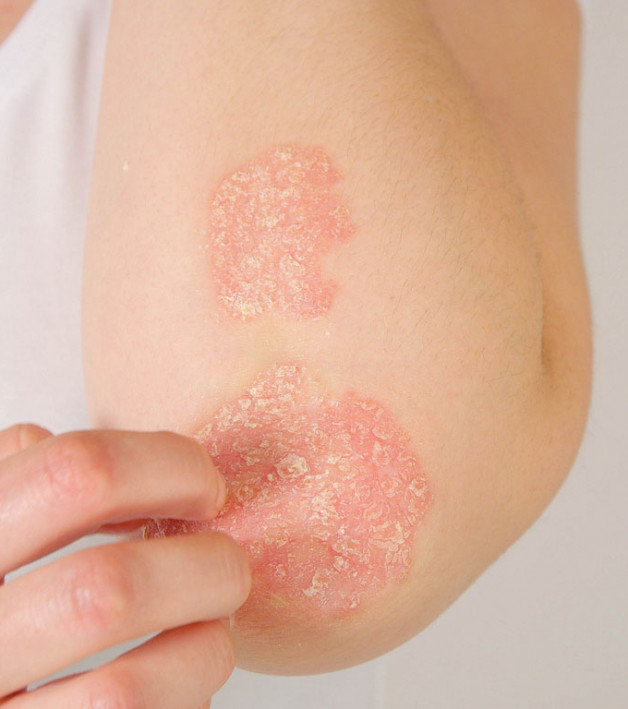
Psoriasis
Plaque psoriasis is the most common type of psoriasis. Those thick, scaly patches that develop on the skin are called plaques (placks). About 80-90% of people living with psoriasis get plaque psoriasis. When someone has plaque psoriasis, you'll often see raised patches coated with a silvery-white scale.
Plaques can appear anywhere on the skin, but you are most likely to find them on the:
- Knees
- Elbows
- Lower back
- Scalp
Plaques tend to vary in size. They may appear on the skin as a single patch or join together to cover a large area of skin. No matter the size, plaques tend to be itchy. Without treatment, the itch can become intense. Some people notice that their skin stings, burns, or feels painful and tight.
Most people who get psoriasis have it for life. That’s true no matter what type of psoriasis you have, with one exception. Some children who have guttate (gut-tate) psoriasis see their psoriasis go away. Because psoriasis tends to be a life-long disease, it helps to learn about it and see a board-certified dermatologist. A bit of knowledge and help from a board-certified dermatologist can give you some control over the psoriasis. By gaining control, you can see clearer (or clear) skin. Gaining control can also help you to feel better, improve your overall health, and prevent the psoriasis from worsening.
Gaining control often involves:
- Learning (and avoiding) what triggers your psoriasis
- Sticking to a good psoriasis skin care routine
- Living a healthy lifestyle
- Using medication when necessary
Seeing a board-certified dermatologist has another benefit. Psoriasis can increase your risk of developing certain diseases, such as psoriatic arthritis or diabetes. Your dermatologist can watch for early signs of disease. If you do develop another disease, early treatment helps to prevent the disease from worsening. When you see a board-certified dermatologist about psoriasis, your dermatologist may talk about the type(s) of psoriasis you have. It’s possible to have more than one type.
Cited from the American Academy of Dermatology



